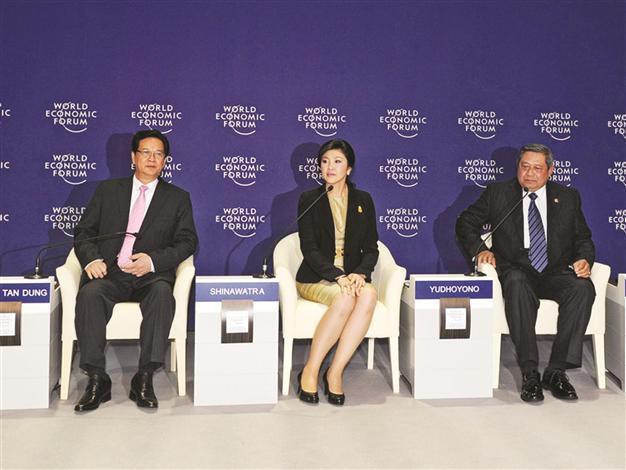Asian protectionism real threat
BANGKOK - Agence France-Presse

AFP Photo
The head of the World Trade Organization yesterday warned against growing Asian protectionism and said the region would not escape the impact of economic woes across the globe.WTO Director General Pascal Lamy acknowledged the region’s relative resilience so far to economic turbulence in the eurozone and continued uncertainty in the US economic outlook. But he told the World Economic Forum on East Asia in Bangkok that it was increasingly “interconnected with the rest of the planet and I don’t think this relative immunity will be forever”.
“I would expect, given what is happening in other parts of the world economy, this region to be more affected than it has been so far,” he added.
Lamy said the “biggest risk” was protectionism, because of Asia’s position as a major exporter to the rest of the world. “The main risk is protectionism, and you know that it remains a serious risk, a growing risk,” he said, adding that protectionist pressure had increased over the last six months.
“But more worryingly protectionists action have intensified, more and more governments are ceding to this pressure,” he said, urging the 10-nation Association of Southeast Asian Nations (ASEAN) to step up integration to insure against external shocks.
Gerard Mestrallet, chairman of energy company GDF SUEZ and co-chair of the forum, said the ASEAN region could become a pillar of the global economy, but warned against turning free trade zone planned for 2015 into a “fortress”.
“If you can do it (free trade zone) in 2015, you’ll have to avoid transforming it into a fortress, you have to let it open to the rest of the world... in terms of trade and in terms of investments.”
The Bangkok summit, which began yesterday and was attended by Myanmar opposition leader Aung San Suu Kyi on her first trip outside her homeland in 24 years, is aimed at providing a forum for nations and business leaders to discuss issues of regional concern.
Growth will fall to 6.5 pct
A report by the UN’s Economic and Social Commission for Asia and Pacific (ESCAP) in early May said the region’s growth will edge down to 6.5 percent in 2012 from 7.0 percent last year caused by troubled export markets and rising commodity prices.
Analysts say ongoing turbulence in the eurozone poses a risk to growth but the region is bolstered by solid growth news from the U.S., China and Japan and fast-growing local economies such as Indonesia and newly opening Myanmar.
“Over the decade ahead, the Asia-Pacific region is expected to be the fastest growing region of the world economy, growing at around six per cent per year,” according to economist Rajiv Biswas if IHS Global Insight.
















